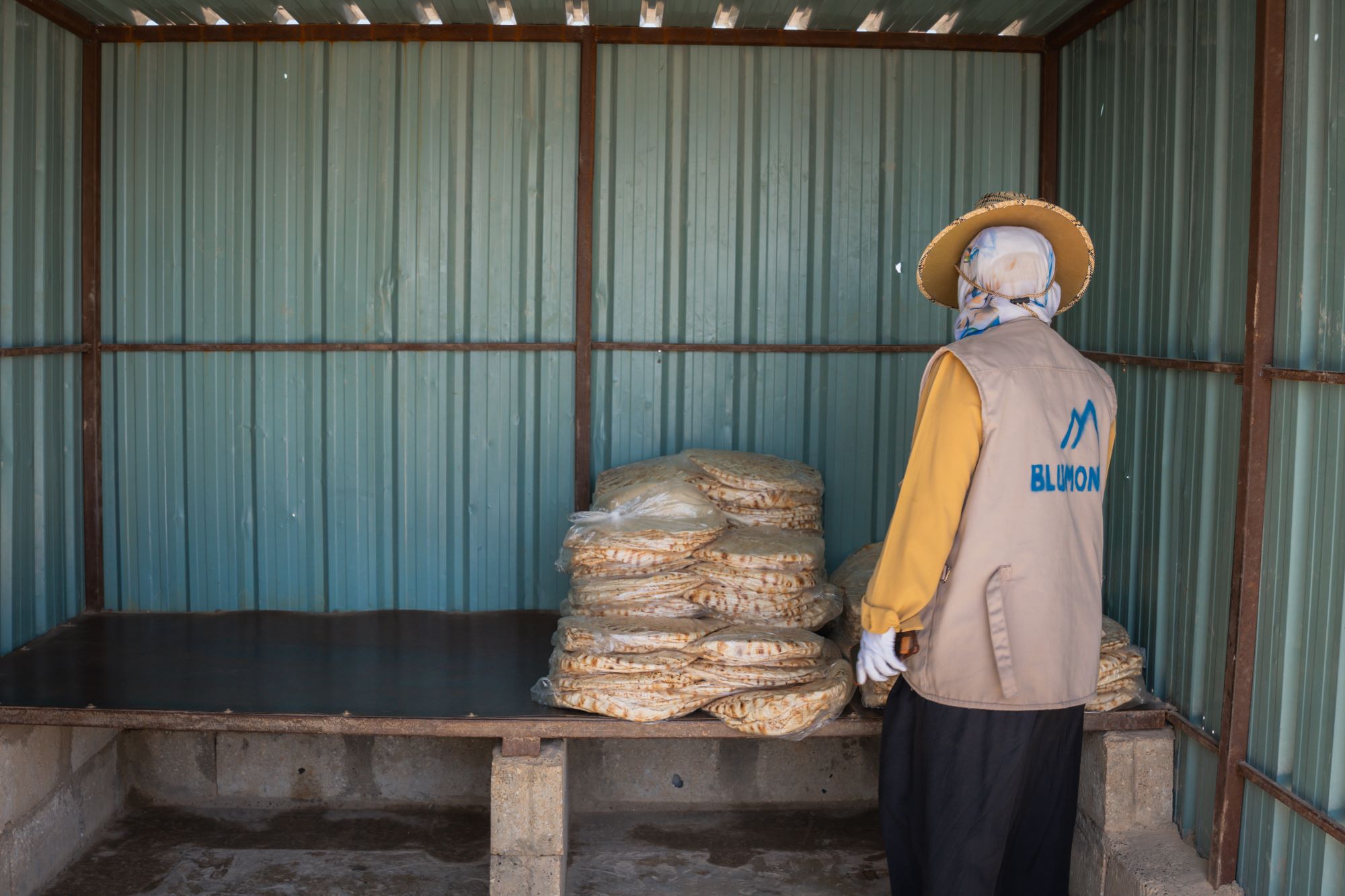The protracted conflict in Syria has resulted in the displacement of millions, who face a multitude of challenges. Syrian families have lost their homes, face food insecurity, and are missing out on education and employment.
The Shelter and Food Emergency Response (SAFER) program, funded by the USAID Bureau for Humanitarian Assistance, is responding to people’s needs not one-by-one, but as a whole. In our humanitarian response, we are meeting displaced families in Syria where they are and helping them move forward.
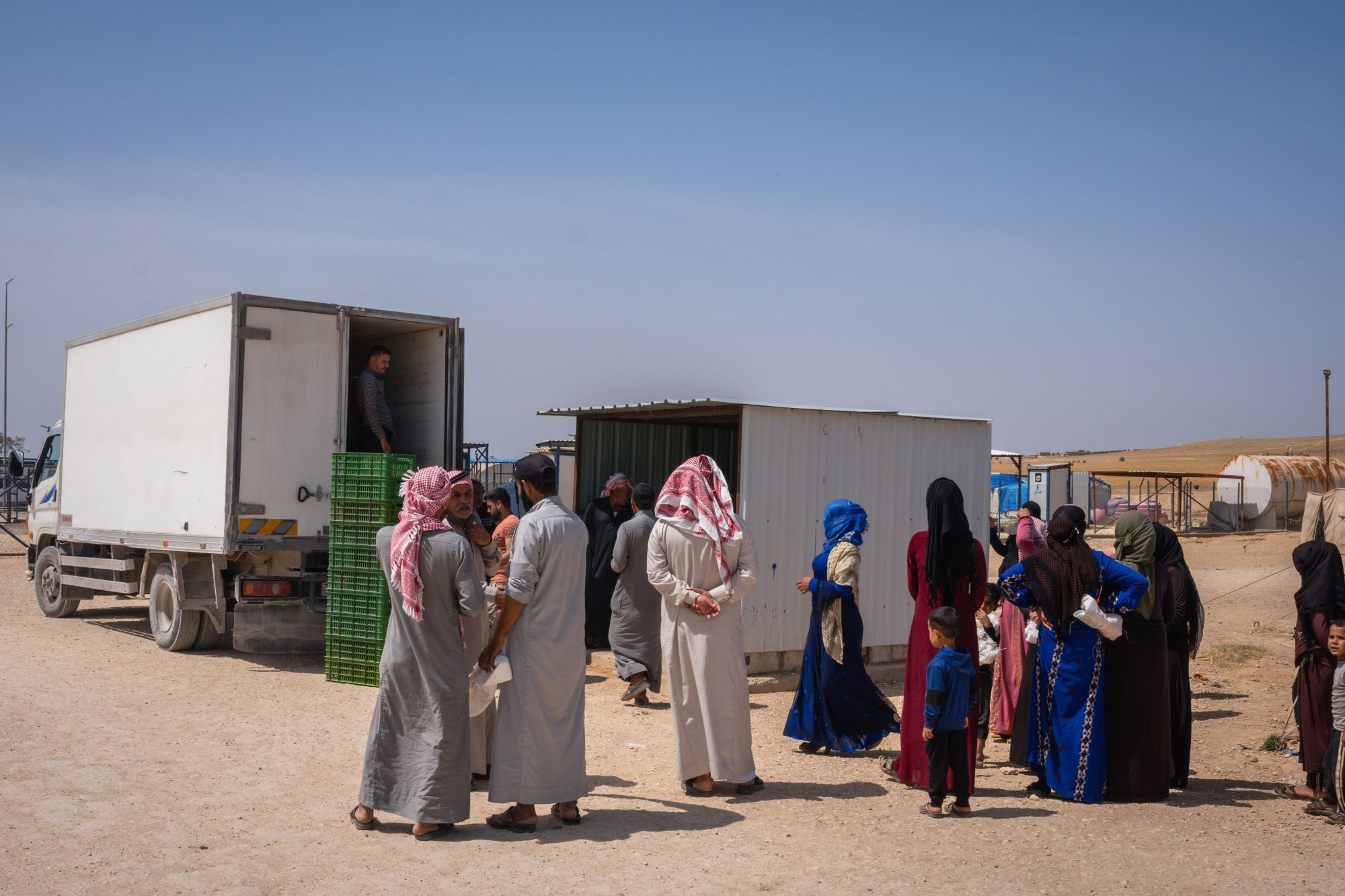
The SAFER program in northeast Syria relieves food insecurity, meets shelter and WASH needs, and promotes agency for displaced populations.
SAFER activities promote household- and community-level food security through bread distribution and supplementary food vouchers in northeast Syria. In addition, the program supports maintenance, WASH, and protection in displacement camps. At its core, the SAFER program is tackling food insecurity in northeast Syria. We partner with local bakeries and bring fresh bread to hundreds of thousands of Syrians in displacement camps and surrounding communities. In addition, we provide vulnerable families living in the region with supplementary food vouchers so they can access more diverse, nutritious foods.
SAFER’s humanitarian efforts also extend beyond food. The program looks at the array of needs facing displaced people. We integrate principles of gender, age, diversity, and disability into camp coordination and camp management operations–from distributing essential household items to rehabilitating camp facilities. This ensures that everyone within a camp feels included and receives the support they need.
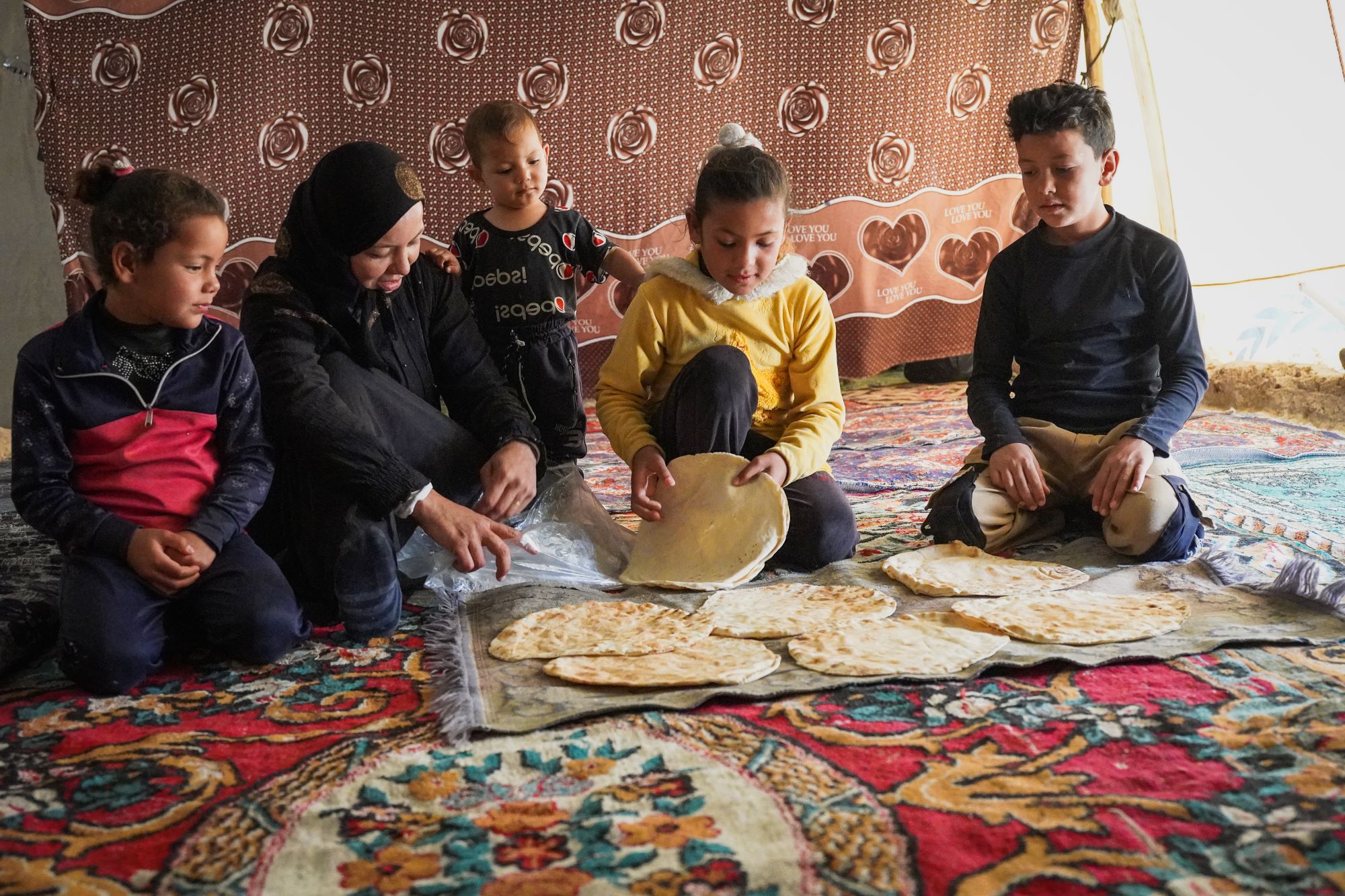
Jalila lives in a displacement camp with her husband and seven children. They receive free bread through the SAFER program, as well as other services.
Jalila lives in one of the displacement camps that receives services from SAFER. She and her family fled their home in Homs province in 2017 due to violence. Upon escaping, Jalila was severely injured by a landmine. The lasting impact of her injury has added challenges to their life in displacement.
After living near Ar-Raqqa for two years, Jalila’s family found shelter in one of the displacement camps managed by SAFER in northeast Syria. Jalila and her family felt more secure at the camp. They had a tent to sleep in and regular access to food.
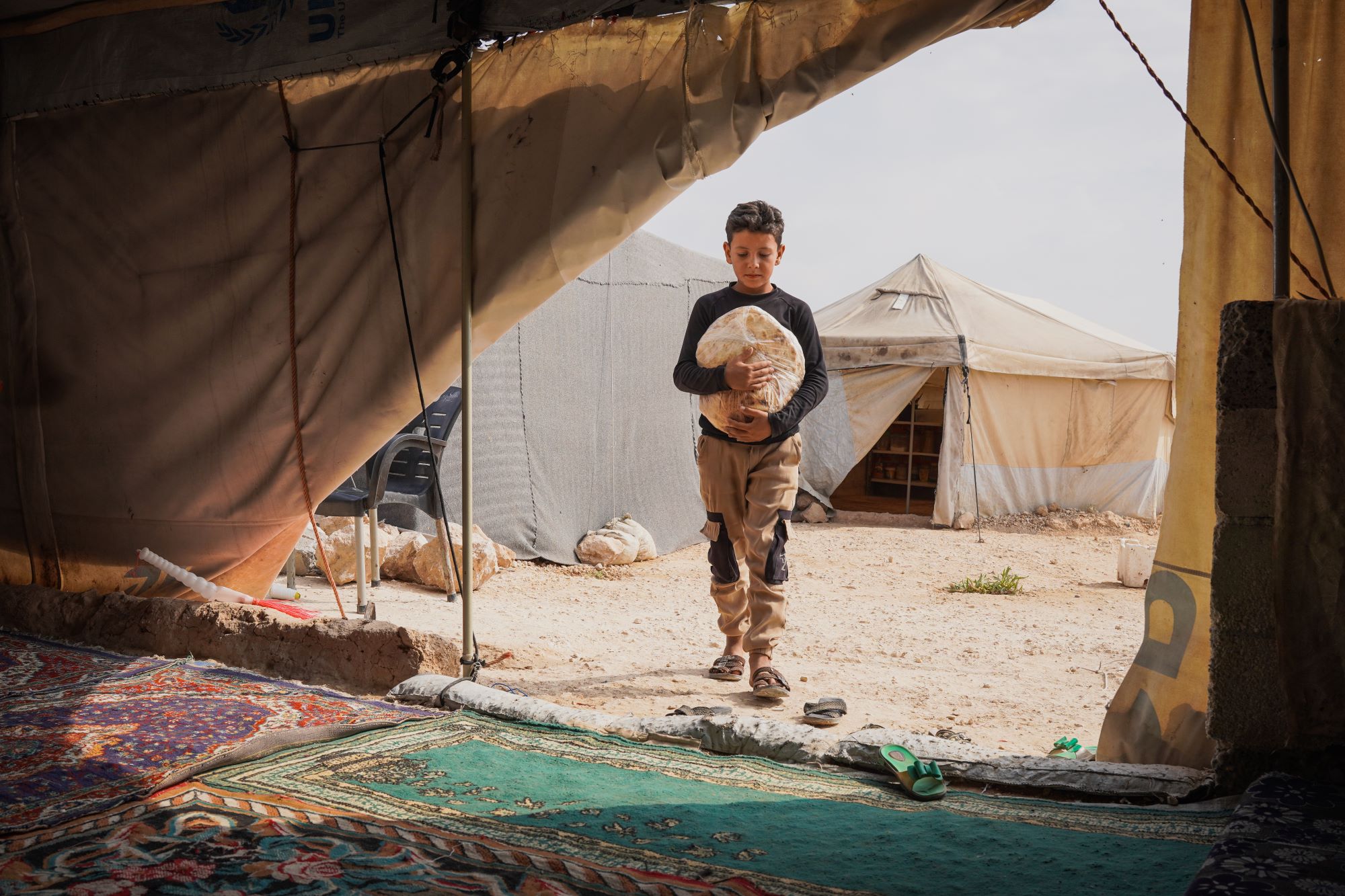
Living in the SAFER-supported camp has brought some stability to Jalila’s family, who have access to food and shelter, as well as education and employment.
SAFER’s daily bread distribution lifted a financial burden on Jalila’s family. “The daily bread, the loaf we receive without payment, contains life itself,” she said. Without worrying about putting food on the table, the family can focus on their well-being.
In addition to providing a stable place to live, our team provided essential items like blankets and cooking utensils. For Jalila, there was something even more important–our team helped her connect her seven children to an education program. After years away from school, they have a sense of normal childhood again.
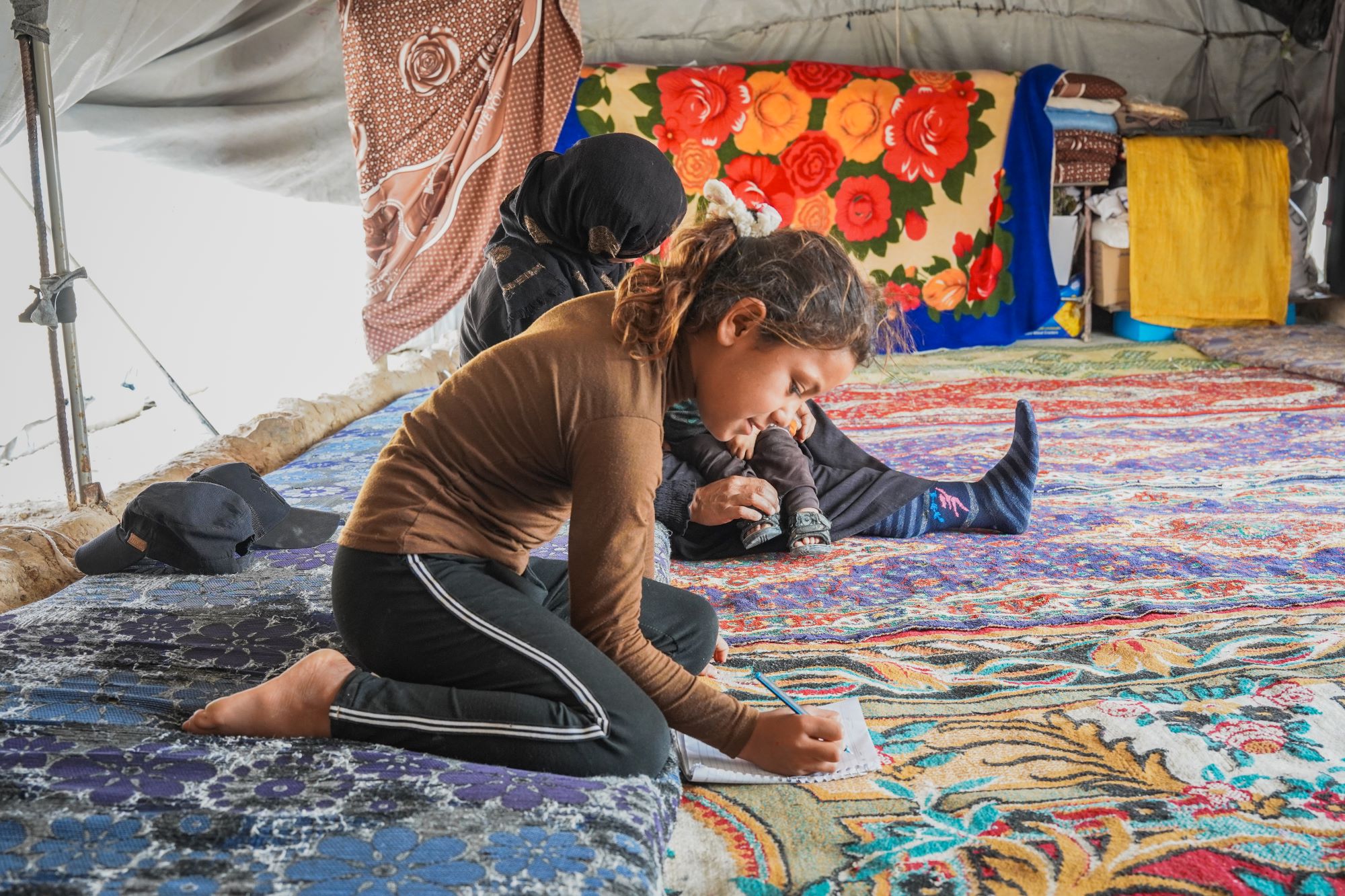
Jalila’s children attend educational programs at the camp, restoring a sense of normalcy to their childhood that has been marked by displacement and conflict.
With food, shelter, and education needs taken care of, Jalila has been able to care for herself, too. The SAFER team referred her to one of the camp’s prosthetic limb health partners. Regaining movement was a life-changing experience, allowing her to play a more active role in family life. “With all the help we received, from the warmth of the tent that housed us to the support that enabled me to walk again, every kindness we received had an impact on our spirits,” she said.
Our team also supported Jalila’s husband Alawi in his efforts to support the family. Finding employment in the camp proved difficult at first. But with assistance from SAFER, Alawi secured a job as a water tanker driver inside the camp. Alawi has newfound financial independence, stability, and hope for the future. At the same time, he is contributing to the community by delivering water to his neighbors.
SAFER is addressing basic needs like food security, facilitating access to healthcare, and supporting livelihood opportunities. We are equipping families with the tools they need to rebuild their lives after an emergency.

